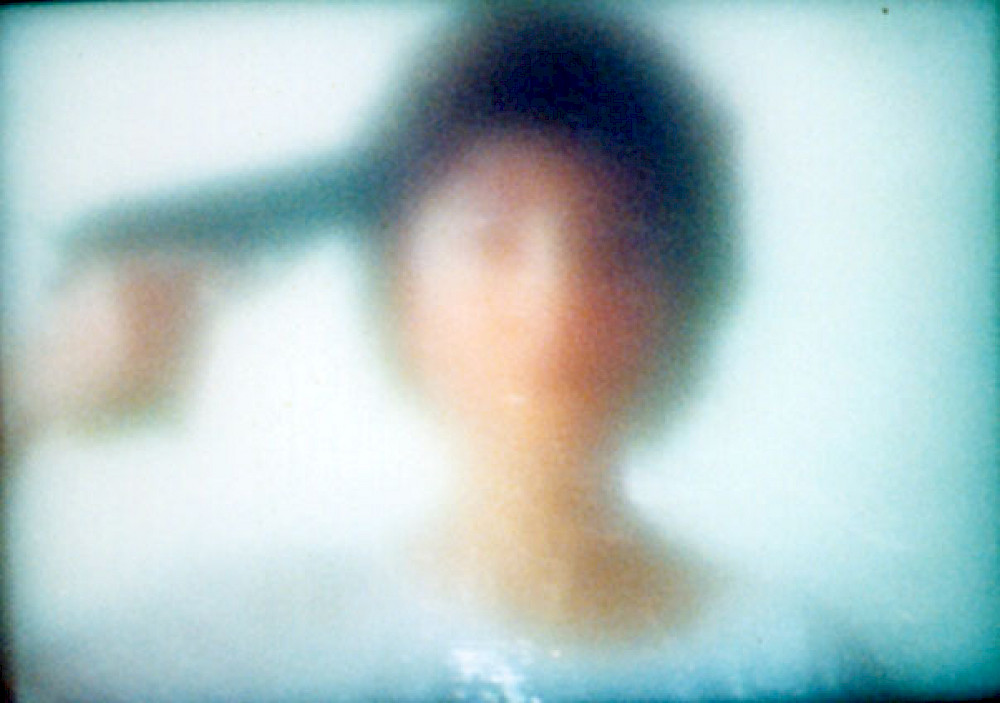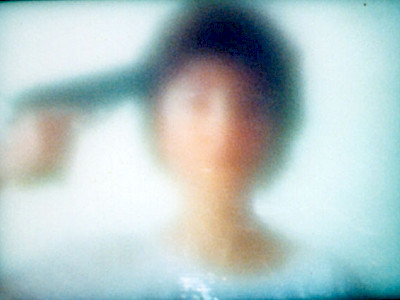15 — 18.05.2003
Rabih Mroué presented Three Posters at the 2002 KunstenFESTIVALdesArts, a play he co-wrote with Elias Khoury based on the confession of a young communist kamikaze.
Biokhraphia by Rabih Mroué and Lina Saneh, with whom he works closely, is a combination of ‘biography’ and ‘khraphia’ (literally meaning ‘delirium’ but also ‘senility’ and ‘shit’). It is a fierce and subtle solo in the form of a fictitious interview where one and the same person plays both interviewer and interviewee – a two-way discussion full of barbed remarks with just the one protagonist. The play has in its sights the different forms of malaise – artistic, media-related, political and intimate – of Lebanese society today.
Start the beginning again
by Bilal KHBEIZ.
The lingual difference between ‘biokhraphy’ and ‘biography’ is not merely a play on words or a detail of little importance.
Biography presumes that a number of acts merit being consigned, dated and archived in the annals of history alongside events like the deportation of Napoleon or the occupation of Iraq by the American forces. Biokhraphy on the other hand is not the account of a real-life past experience claiming to be worthwhile as a model or example to follow. The biokhrapher starts from an essential consideration that the past has been a grave mistake, but also that the individual’s past is becoming muddled in a complex way with so many pasts of so many other people. This is why a personal biokhraphy can only attack the peace of mind, tranquillity and good conscience of these others who are such right-thinking and politically correct people.
Some biographies are like the humble and obsequious curriculum vitae we have to give every time we are looking for a job. Servile, by necessity incomplete, distorted and distorting, misrepresented and misrepresenting, curriculum vitae are the very opposite of biographies. For the latter always seem to be complete, whole, absolute, full, with a beginning and an end according to convention. The biokhraphy radically disrupts and breaks these typical forms of relationships and connections between the narrator and his readership: relationships based on the narrator pleading with the recipient, like in a curriculum vitae. It asks questions of the recipient so that there is a more effective debate, hence the latter’s rebellion when he discovers that he has lost his status as recipient and finds himself ‘put in the dock’.
Biography supposes an act of personal rectification for a real-life past. Biography seems to master the details of a life and be capable of taking the necessary decisions concerning these details and this life. It seems also to be capable of distancing itself with regard to this real life –a distance necessary so that this real life can be integrated as a party to a past that is completely clear, perceptible, removed from any suspicion, from any mistrust, from any doubt. A visible, legible past not only for the biographer but for his readership too. Lastly biography supposes its author to have a certain confidence in his abilities to observe and comment on a life in an impartial and neutral way. Without these two acquired characteristics of self-confidence and neutrality, the biography would be more like a legendary tale or would at least come close to a legendary model.
As for biokhraphy, it can only exist in places tyrannised by powers of various and divergent origins (the state or, worse, an absence of it, religious communities, family law, traditions, the interference of large regional and global powers etc.) which turns the people living there into victims rather than active and efficient citizens. And then only when the individual has become a victim can this new genre begin to be created: a confession of the vanquished or, in other words, a farewell to the past in order to start everything again for the better from scratch. Start from the beginning again. Start the beginning again. Every time we are driven to the brink of creating our own biokhraphy, we see ourselves being led to put aside our life so that we can (better confront our fate face-to-face. Isn’t this what is being offered today to the Iraqis: they are saying farewell to a past while seeing the coming defeat as the best way of starting the beginning again. However in this instance it is about a new beginning that is starting off from the unknown. Biokhraphy is a third world product par excellence. Better still, it is a local product, specific to these places that we have just mentioned, and it cannot be produced anywhere else without its profound meaning being lost.
Text & Direction: Lina Saneh & Rabih Mroué
Actress: Lina Saneh
Set & graphic design: Ali Cherry
Coproduction: Ashkal Alwan (Beyrouth 2002)
Presentation: Théâtre 140, KunstenFESTIVALdesArts


